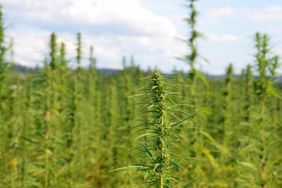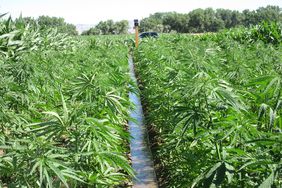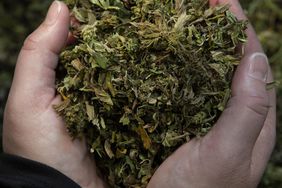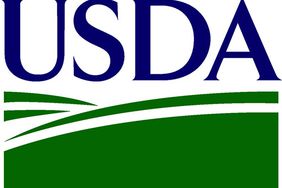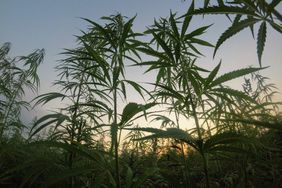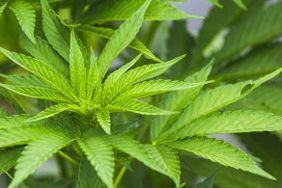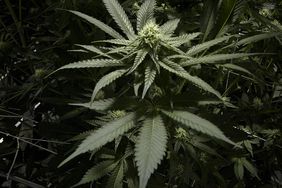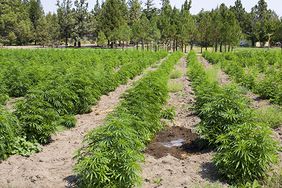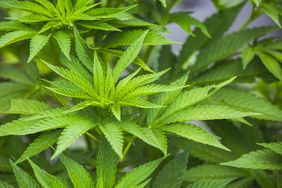:max_bytes(150000):strip_icc()/iStock-904560152-2000-54c52b6463a842e28fb87a6de4fe6e36.jpg)
Hemp production has been federally legal since the passage of the Agricultural Improvement Act in 2018, though some states are slow to adopt output of the plant that's used to make fiber, paper, and even food.
Producers, however, need to abide with state agricultural laws along with the 2014 U.S. Agricultural Act and the aforementioned 2018 law, and obtain permits issued by local departments of agriculture, said Emiliano Aloi, the president of Exactus Inc., which just acquired a majority interest in a 200-acre industrial hemp farm in Oregon.
Aloi shared his outlook for the future of the hemp industry with Successful Farming magazine.
1. What's the difference between hemp and marijuana – the two seem to be joined at the hip but they're obviously quite different.
EA: Both belong to the cannabis genus, yet industrial hemp is defined as the strains or varietals of the genus that contain less than 0.3% Delta-9 THC at a flower level on a dry weight basis. Among the different strains of hemp, there are those that contain higher concentrations of CBD, CBG, CBN, CBD, which are the types we utilize.
2. What sort of specialized materials or equipment are needed to produce hemp vs. traditional farming? What other input costs should a grower expect?
EA: Most materials and equipment are common to other farming methods, yet some settings or adaptations are needed to apply to hemp. Also, hemp is unique in that it is an annual crop, yet it is cultivated in many ways common to vines and other perennial types. That means that both orchard type farms as well as extensive farming outfits can potentially insert themselves into the hemp supply chain with some adaptation of protocols and equipment.
3. What kind of soil and topography is ideal for hemp production?
EA: This is a complex question for a quick answer. Hemp doesn't really need very high-quality soil, but it does need other conditions for optimal growth. As far as location goes, ideal places are away from the equator and closer to the poles. Hemp needs flat fields with good percolation, hot days and cools nights, healthy supply of water and nutrients, and short summers. Most places apt for vineyards or high-valley fruits will be on the ideal side for hemp production.
4. What does the climate need to be like to grow hemp?
EA: Temperate weather with distinctively hot summers and a cold winter, with large day and night thermal spreads, outside of tropics.
5. What is the growing season, as in when do you plant and when do you harvest?
EA: This varies with the location, but it is a summer crop that generally will be farmed between June and early November. Places closer to the poles will harvest earlier.
6. How much labor goes into hemp production, how many workers do you need, and what are labor costs like?
EA: It depends on the farming style. Extensive farming operations, such as the ones found in Canada or Europe, will have very little job impact since they are mostly machine driven, but orchard-style operations like the ones found most commonly in the U.S. are very labor intensive. During harvest, labor demand may require up to two people per acre and when cure drying even more.
7. To whom do you sell hemp once it's harvested? Do you need to presell in advance vs. selling after harvest?
EA: Most farming happens under contract with manufacturing labs, however, there's a growing market of hemp biomass, both at the futures (presales) level, as well as after harvest. The decision to presell or hold usually has more to do with financing needs and financial plans of both the farmers and the processors that may commission the crop.
8. Without an exchange it's hard to know how much one would need to make to at least breakeven, so what are prices like, are they trending up and is it possible to be profitable?
EA: With demand exceeding supply, it has been very profitable for farmers that entered the hemp world. However, many crops have been lost to fake science and bad genetics. With such a booming market, it is wise for farmers to attach themselves to proven genetics with proven supply chain networks, since unfortunately there are lot of bad players that will commit to things they will not do, as well as many people that will sell genetics without the proper certifications and track records.
9. Where do you buy any specialized inputs, so where do you buy hemp seed?
EA: There a few good sources of hemp seed, but usually carefully guarded. It is imperative to grow only certified genetics that are safe for the environment, that will safely stay within the legal limits of THC, that are properly feminized to avoid the appearances of males, and ultimately that will provide a healthy and profitable crop.
10. Who's the most likely candidate for hemp production? Would it be soybean and corn growers adding another crop to the rotation or tobacco farmers looking for a replacement for tobacco?
EA: Tobacco farmers have been rolling into hemp out of necessity, mainly, but do usually know the irrigation and cultivation methods needed for hemp farming. At the extensive level, corn and wheat farmers are finding it (more difficult) to make a profit, and that itself will drive them to try new and more specialized crops. Also fruit farmers will generally have the knowledge to care for hemp. In the near term, successful and responsible hemp farming should see hemp included as a rotational crop, both for its sustainable insertion into large scale agriculture, as well as for the nitrogen fixation and farm sanitation characteristics of hemp.
